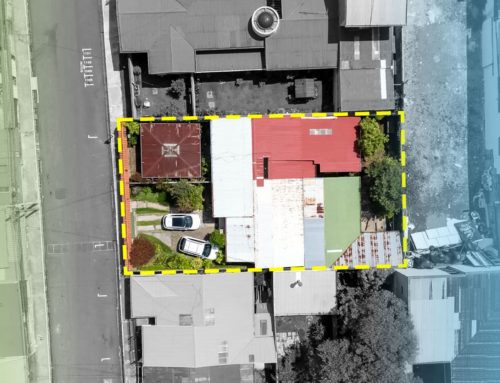The Law of Arrendamientos Urbanos y Suburbanos (Urban and Suburban Leasing Law) Law No. 7527, regulates property lease agreements in Costa Rica. Both landlords and tenants are regulated by this standard, so it is important to know what rights and duties are granted to each of the parties.
Obligations and rights of the lessor
- Guarantee the legitimacy of your right (i.e. your ability to lease the property), as well as guarantee the peaceful use and enjoyment of it during the time of the contract.
-
Deliver and preserve the property with facilities, services, accessories, unbuilt spaces and non-fungible furniture agreed in good condition. Except if in the contract it is agreed that it is the obligation of the lessee, to fix things in poor condition.
- Do not disturb the use and enjoyment of the leased property, unless urgent or necessary repairs are needed.
- Respect the contract between parties.
- Respond for serious defects of the property when they prevent or significantly diminish the use and enjoyment of it.
- Make necessary repairs, without the right to raise the rent, unless the deterioration is attributable to the lessee.
- You may not change the form, make innovations or works on the property, without the prior consent of the tenant.
Some actions prohibited to the lessor are also expressly indicated (article 31), such as that the lessor cannot suppress or reduce the essential services of the property (such as sewerage, electricity, light, ventilation …). Nor can it carry out actions that alter or threaten the right to the peaceful enjoyment of the property.
If any of these actions are given by action or omission of a third party, it is the obligation of the lessor, to find a solution to the problem and guarantee the full use and enjoyment of the leased property.
The rights of the landlord are:
Invoke the resolution of the contract, in case the lessee fails to comply with the duties.
Demand repairs and payment when the damages were made by the lessee, in addition to having the right to force them to destroy the works made without his authorization. In this case you can invoke the termination of the contract and claim damages.
Demanding the repair of damages and deterioration by the visitors of the lessee.
Carry out monthly inspections of the property or when circumstances warrant it. You must do them during the day or during the hours when the establishment is open, in presence of an adult. You can be accompanied by a professional to inspect the facilities and accessories of the property, as well as draw plans, take photographs and note the existing damage and deterioration.
Obligations and rights of the lessee
The lessee undertakes to:
- Pay the agreed price for the lease on the date agreed between the parties.
- Use the property only for the destination agreed in the contract, unless written authorization of the lessor. In case of disrespect the purpose of the property, the landlord is authorized to file the eviction or finish the contract.
- Keep the property in good condition, that is, not damage it, deteriorate it or carry out harmful works that alter its form or destination without prior authorization. And in case there are necessary repairs, you must allow the landlord to make them.
- In case of damage to the property, the tenant can demand the repair and charge the cost of the repairs to the rent.
- Return the property at the end of the contract.
- You must advise if there are any serious defects in the property or if measures are needed against a foreseeable danger or damage. In case of failure to give timely notice, the lessor may terminate the contract and sue for damages.
- Use the property without causing danger or disturbance of public tranquility. In case of carrying out notoriously annoying, dangerous or illicit activities, the lessee can request the termination of the contract.
- Respect the law and the contract.
Within the obligations of the lessor, the law includes the duty to allow the lessor to inspect the leased property once a month or when circumstances warrant it during daylight hours or when the establishment is open.
This inspection is done in the presence of the tenant or any person of legal age who is in the property. In case of not allowing this inspection, after being requested by notification on at least two occasions, the lessor can invoke the termination of the contract.
The rights of the lessee are:
You can request a proportional reduction of the price or claim compensation for damages if the property has a serious defect that prevents its full enjoyment and use. Unless you have known these defects at the time the contract is concluded and it is recorded in writing.
Require proof of payment to prove the existence of the contract and the agreed price. You also have the right to seek damages in case that the lessor fails to comply with its obligations either by action or omission of itself or its representatives.
If, after having notified the lessor of the urgency of repairs, the latter does not start the work within ten working days (unless the delay is caused by fortuitous event or by overwhelming force), the lessee has the right to carry them out on behalf of the lessor. In addition to being able to retain part of the rent corresponding to the cost of the repairs, plus the interest charge, according to the basic passive rate established by the Central Bank of Costa Rica, in force at the time or request the termination of the contract.
To be compensated for damages by the lessor when it is deprived of the use and enjoyment of the thing due to eviction. If the eviction is partial, then you have the right to claim a price decrease or the termination of the contract if it is a main part of the thing.
Exercise your right to use and enjoy the property within the agreed limits and destination. If you rent within a condominium, you have the right to participate, without vote, in the deliberations of the owners’ assembly.
The rental process has many variables that must be analyzed prior to the signing of the contract. It is important that each party knows their rights and duties that must be fulfilled, so that the time in which they are mutually obligated is for the benefit of both.
Whether you are a landlord or a tenant, it is essential to clear up any doubts you may have regarding the law, therefore, if you wish to learn more about the regulations or if you have specific doubts regarding the subject, do not hesitate to contact to our Nativu Advisors.








